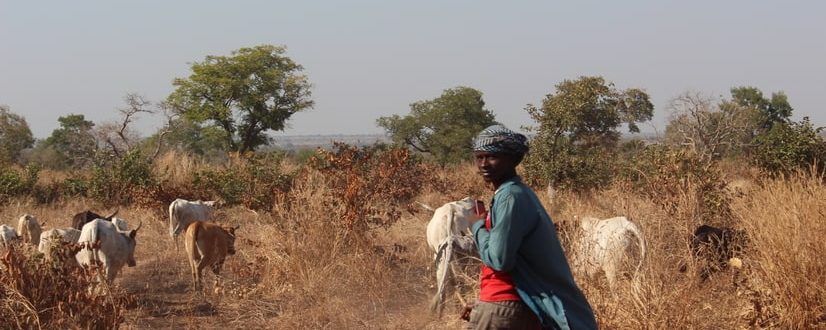Date Issued: February 7, 2019 –
The periodic farmer-herder conflict in Ghana over years has negatively impacted on livelihoods of the affected communities. Apart from loss of cattle, crop farms, destruction of water bodies and farm lands and even human lives; the development is a serious threat to peace and security of vulnerable farmers and the districts where they occur.
The recent destruction of crop farms and subsequent killing of herdsmen and their cattle in Samso near Drobonso in the Sekyere Afram Plains district is a wakeup call that the problem is far from over.
The past and present governments of Ghana tried through the Operation Cow Leg and the relocation of cattle from conflict communities such as Agogo to other districts, only succeeded in providing very short-term solutions.
The Peasant Farmers Association of Ghana (PFAG) and the Ghana National Association of Cattle Farmers (GNACAF) have been very perturbed and anxious over the insecure lives of their members who continue to perish as a result of these crisis. The two Associations together with the Ghana Cattle Ranching Committee (GCRC) that has been set up by the Government, have done extensive consultation and identified the absence of a Cattle Ranching Law that would guide the activities of the two factions as significantly, contributing to the problems. In seeking for lasting solutions, PFAG, GNACAF and GCRC with support from the Business Advocacy Fund (BUSAC) developed a Ghana Pastoral Policy to be the vehicle that would drive the formulation of a Cattle Ranching Law. The Cattle Ranching Law will prescribe the mechanisms for breeding animals and other procedures to ensure safety and protection of lives and properties of both parties during the breeding season.
The developed Ghana Pastoral policy has been broadly accepted by leaders of both small-scale farmers and herdsmen through sensitization exercises and it is expected to be validated by key stakeholders in the pastoral value chain before submission to the government for consideration. The draft policy has identified twelve intervention areas that are expected to lead to the attainment of the general goal of ensuring mutual relationship between the two farmer groups. Key among the interventions include Public awareness of Pastoralism, Entry and Departure of Pastoral Heads, Corridor for Pastoral Heads, Grazing Reserves, Pastoral Capacity Building, Pastoral Support Fund among others.
The Pastoral Policy also outlines implementation strategies and clearly defines roles and responsibilities of the various agencies as well as the institutional framework for successful implementation of the policy.
This development has become critical and timely owing to the recent media reports of violent clashes between the two groups in the Agogo District resulting in the death of one person. Further reports claim of tensions between the two groups reoccurring, and with the Police Command confirming receipt of several complaints from crop farmers on the activities of the herdsmen, it is critical that proper legislation is put in place to manage the activities of the two groups before it spirals out of control.
The PFAG, GNACAF and GCRC therefore appeal to the key stakeholders in the pastoral value chain and the general public to support the cause and put finality to this albatross threatening our peace and food security.


leave a comment
You must be logged in to post a comment.